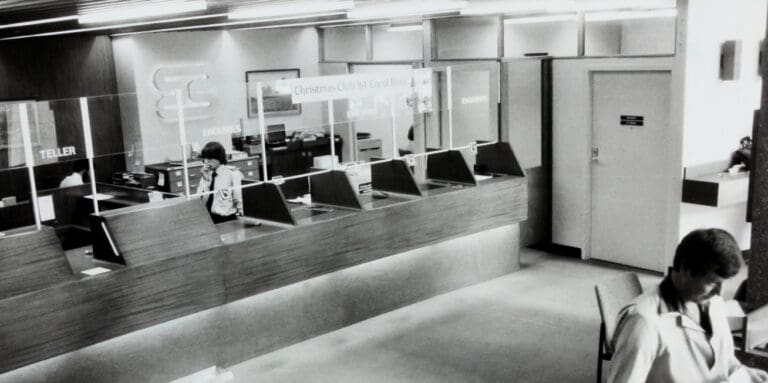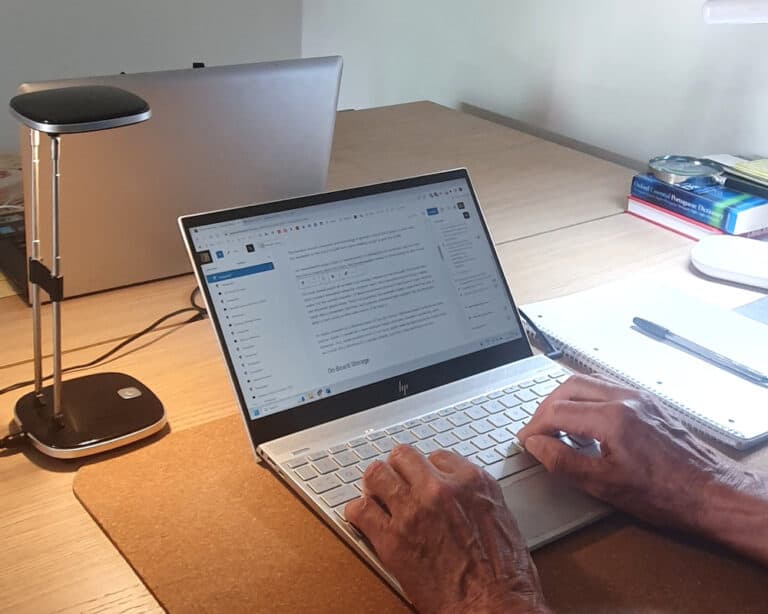Older Adults and Technology: Flawed Stereotypes
Are we, ‘older people’, really that confused and inept at technology, computers, etc?
Most of us may have heard some version of that from various sources from time to time. Maybe not so much in the more serious, objective, and reputable end of the media. But the perception seems to be there in the ‘off-the-cuff’ end that older people are less able to cope with technology and find it confusing.
Of course, ‘older people’ being such a generalisation it’s like trying to measure the dimensions of a fog. We know when we’re definitely in it, or definitely not. But it’s anybody’s guess where the boundary is.
Stress-testing the Stereotype
But what do we think about this ‘older people’ and technology thing? Is there something like this that seems to be brought on by ‘being older’? Or rather by factors unrelated to age, or relating to any age group? Or might there simply be biases and supposition of various types at work here?
Where Is The Data?
Or, can the recruitment sector help us with statistics on technology and computing job placements by age, compared with the overall pool of applicants, for example. Might it help either dismiss or uncover a leaning toward bias? It might perhaps, if it was available. But I wouldn’t hold my breath about finding much of that kind of ammunition lying around, short of producing a discovery order.
How can we dig a little deeper?
It’s challenging. Maybe Google Search for more general stuff, or Google Scholar for possible peer-reviewed research. And trying to figure out what’s credible, and what’s just plain blarney.
As it happens, nothing definitive, but a few interesting sources and summary findings.
Some Credible Articles
For example, there is a helpful online article from the US National Institutes of Health (NIH). They conducted a study on a sample of inexperienced computer users in the 65-76 age category titled “Older Adults Perceptions of Technology and Barriers to Interacting with Tablet Computers”. The study is here.
Their conclusion was, while most of the participants were eager to adopt new technology, they had issues with the clarity of instructions and support.
Technology Instructions & Technical Support
This wouldn’t be a new discovery. Technology instructions and support generally seem to be written by nerds and provided by nerds for nerds. Packed with tech-speak and jargonistic terms that would have been part of their vocabulary since forever in their eyes. But perhaps hasn’t been in the lexicon of the people who need to use the instructions and access the support.
The people usually tasked with technology instructions and support frequently seem to have little or no idea how to articulate in plain ‘vanilla’ English. Language appropriate for those making the transition or at an early stage on the learning curve. For example, there was a time when a gig was a band playing at a pub, and a tab was something you ran up in that pub for drinks for the buddies while enjoying the gig! We knew how to have fun and relate across the age spectrum!
Now if somebody wants to adapt the terminology for some good reason, fine, but there’s a need to bridge the gap.
It’s akin to dragging a teenager off the street, dropping them onto the New York Stock Exchange trading floor (it still exists) and expecting them to understand what’s going on. Not going to happen – the understanding, that is!
The problem isn’t related to the victim being a teenager! It seems unlikely we’d come to the conclusion that ‘younger people are confused by stock exchanges’. At least I hope not.
Stereotyping Problem
Another illuminating article comes from the Stanford Center on Longevity, titled ‘Older Adults and Technology: Moving Beyond The Stereotypes‘ (undated). It looks at quite mixed bag of issues around older adults and technology.
Notably, the article highlights stereotyping as a problem bias. But, and as confirmed in the article from NIH mentioned above, there’s no shortage of willingness in older people to come to grips with technology. A point they make is, “Research confirms that stereotypes about older people and technology – part of today’s ageism – have the same negative effect as other “isms” and can undermine older adults’ confidence”.
The Need and Active Response
Another study by the US National Center for Biotechnology Information (NCBI) showed that during the early Covid-19 pandemic stages, older adults stepped up to the plate technology-wise. They engaged in higher levels of technology use for everyday activities such as shopping, socializing, and entertainment in 2020, compared to 2019. View the article here.
In other words, older adults acted on the demonstrated need.
Coincidence or Causation
We may have a issue here, in terms of the older people and technology, with correlation being confused with causation. The problem may be contextually correlated with age, but it is not caused by age.
Much more likely the problem is misunderstanding or not appreciating the challenge of an unfamiliar environment. What’s needed is empathetic guidance and an engaging journey of discovery and learning!
Re-Evaluate and Re-Align Perceptions
Everything here supports the hypothesis that those who feel ‘older people’, are confused and inept in the use of technology have misconceived the situation. There is plenty of scope for those in that camp, on the outside looking in, to re-evaluate and re-align, in the light of the facts.
Show What We Can Do
Lastly, there is something we ‘older adults’ can do for ourselves in the technology space, it seems.
Although I didn’t have a career in technology and computers, I’ve always been interested in them. Thus, I’ve been dabbling for decades, building simple websites, blogs, and accumulating skills through quite a few courses, informal and formal, here and there. It’s something all we ‘older adults’ can do and maybe need to do. The culmination of all this for me was a specialist Masters degree in computing at age 69, a year or so ago. With a fair bit of challenging but fascinating and enjoyable work of course.
It wasn’t about accolade or career advancement, obviously – just the knowledge and insight! Using it rather than losing it. We can do technology at an advanced level, if we so choose. That was the purpose, and never having undertaken an advanced degree, if it was possible for me, it’s possible for most people.
Stay On The Train
We need to be doing this kind of thing. There’s no good reason for getting off the train while there are still beautiful vistas and destinations on down the line. We have the ticket – let’s use it!
Wouldn’t it be fun seeing us ‘older adults’ posing with our ‘hip’ leather messenger bag for our laptop computer slung over our shoulders at the cool cafes! It’s our turn to disrupt the status quo!
And for those who have stayed on the side-lines, a previous blog article outlines a great computer setup to get going on the digital wave.
Header Image Attribution: Freepix




